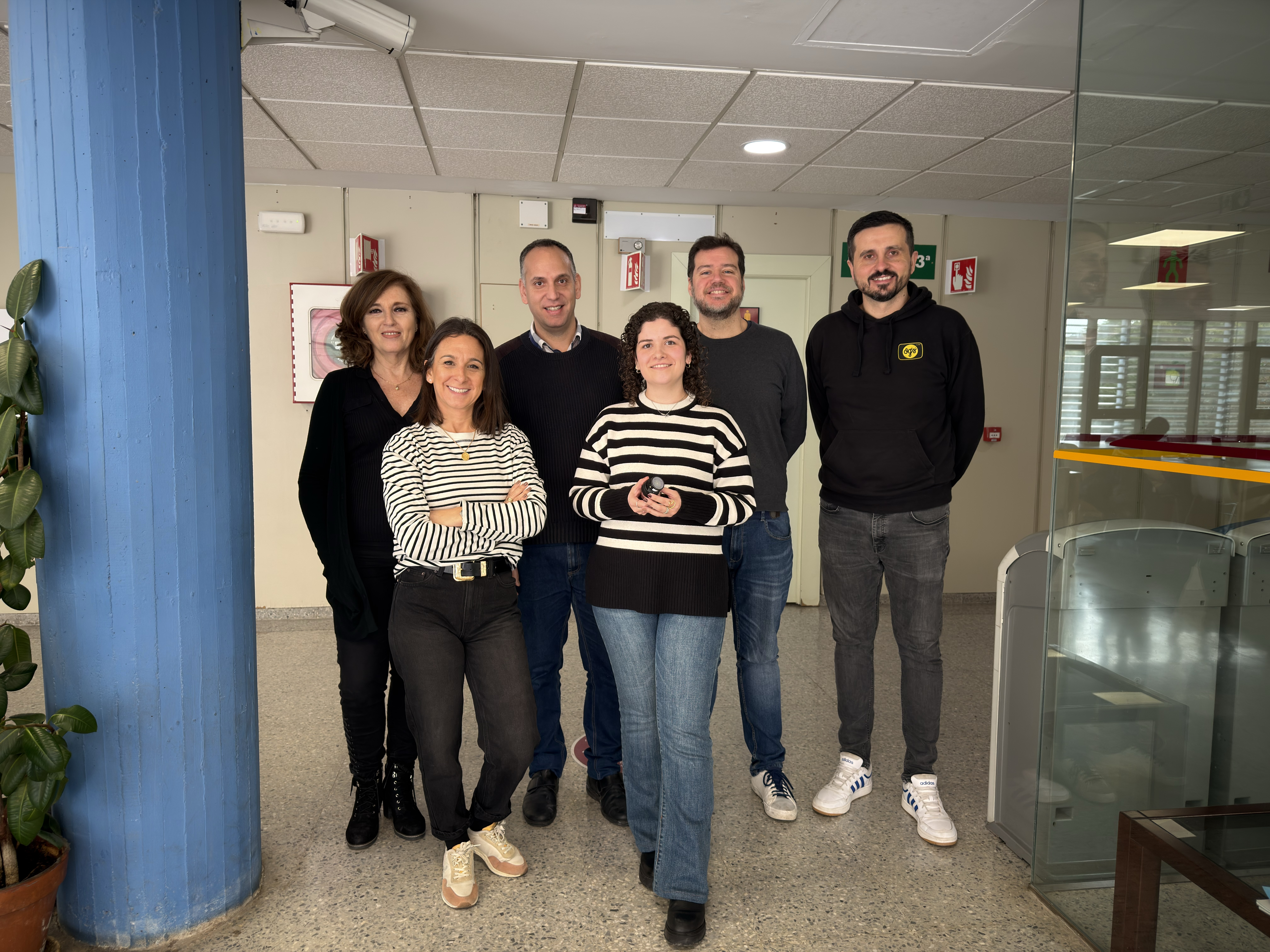Development of a smart tracker that identifies offensive tweets against women and migrants
A research team from the University of Jaén is applying a system to recognise misogynist and xenophobic racist comments on Twitter. This technology learns and distinguishes the nuances of a wide range of phrases, words and insults in Spanish. Experts are utilizing this artificial intelligence to detect hate messages on this social network.
The research group SINAI (Sistemas de Acceso Inteligente a la Información, i.e. Intelligent Access to Information Systems) of the University of Jaén has developed a system based on artificial intelligence to identify misogynist and xenophobic messages on Twitter. This method can be used in areas such as policing and the application of the law to detect hate messages, as well as to moderate the language of the tweets generated on this social network. The program is based on machine learning algorithms, including neural networks, structures that mimic the functioning of the human brain and ‘learn’ to capture the nuances of messages.
Experts point out that this system identifies Spanish offensive content and language ambiguities in order to catch hate messages on Twitter. They add that this system could be used as a warning mechanism to detect comments that incite hatred and violence towards women and migrants.
To identify offensive statements, researchers use neural networks that behave just like the human brain: they connect nodes that interpret information and order it. It is an intelligent system that uses training data made up of insults, terms and derogatory expressions to ‘learn’ the patterns and structure of language in order to predict new tweets and detect those that are offensive. «Some phrases include essential pronouns or determinants that can completely change the meaning of a wording. With our system and with the help of linguistic resources, we can identify expressions related to hate speech,» explains the researcher Flor Miriam Plaza at the University of Jaén to Fundación Descubre.
In the study, entitled ‘Detecting Misogyny and Xenophobia in Spanish Tweets Using Language Technologies’ and published in ACM Transactions on Internet Technology, the researchers explain that in order to ‘instruct’ the system they semi-automatically generated four lists of words in Spanish consisting of offensive and insulting expressions and words against women and migrants.
On this basis and after detecting the tweet, artificial intelligence identifies hate speech aimed specifically against these two demographic groups. «Currently, we continue to integrate new lexical resources into this technology, such as dictionaries and word lists, so that the system will increasingly distinguish nuances in tweets; in this way we increase its accuracy and effectiveness,» explains María Teresa Martín, researcher at the University of Jaén.
Message collection and analysis
During the research process, experts collected tweets using offensive terms such as ‘zorra’ (‘bitch’) or ‘negrata’ (‘nigger’). The system identifies the context in which these words are used and recognises whether they are being applied as insults. Thereby the program detects and collects pejorative messages towards women or migrants.

María Dolores Molina, Flor Miriam Plaza del Arco, María Teresa Valdivia and L. Alfonso Ureña, authors of the study.
The researchers explain that this technology is suitable for application in various areas, such as legal processes or marketing, since collecting and analysing each message manually is a process requiring time and dedication from a specialist, while the program performs it automatically. «This system can be useful for the police or agencies that currently work with complaints of bullying or hate speech,» explains María Dolores Molina, researcher at the University of Jaén.
In previous studies, the research group SINAI focused its efforts on the detection of anorexia and bulimia cases on social media, as well as the recognition of the emotions of Twitter users. «We want to improve technology based on artificial intelligence and machine learning by applying techniques focused on sentiment analysis. This will allow it to be applied in a wider variety of areas and to offer support to organisations that could need it», says L. Alfonso Ureña, researcher at the University of Jaén.
This research work was supported through the University of Jaén SINAI (Sistemas de Acceso Inteligente a la Información, i.e. Intelligent Access to Information Systems) research group’s own funds, the European Regional Development Fund (FEDER), the LIVING-LANG project, the REDES project and a grant for FPI pre-doctoral contracts (under reference PRE2019-089310) awarded by the Spanish Ministry of Science, Innovation and Universities.
Spanish version: Desarrollan un rastreador inteligente que identifica tuits ofensivos contra mujeres y migrantes
References
Plaza-del-Arco, F.M; Molina-González, M.D; Ureña-López, L.A. & Martín- Valdivia, M.T. (2020). “Detecting Misogyny and Xenophobia in Spanish Tweets Using Language Technologies”. ACM Trans. Internet Technol. 20, 2, Article 12, 19 pages.
Más información:
#CienciaDirecta, agencia de noticias de ciencia andaluza, financiada por la Consejería de Transformación Económica, Industria, Conocimiento y Universidades de la Junta de Andalucía.
Teléfono: 954 232 349
Últimas publicaciones
Un equipo de investigación de la Universidad de Sevilla ha identificado un sistema rápido, no destructivo y que puede emplearse 'in situ' en las bodegas para seleccionar orujo de la uva blanca y reutilizarlos para disminuir hasta un 50% la aspereza de este producto vitivinícola.
Sigue leyendoLa Sociedad Andaluza para la Divulgación de la Ciencia y la Fundación Descubre, promovida por la Consejería de Universidad, Investigación e Innovación, organizan este foro de ideas en el que un grupo de estudiantes aborda temas científicos relacionados con el calentamiento global y la crisis ambiental.
La clausura de esta iniciativa, en la que se celebra la asamblea final, ha estado presidida por el consejero de Universidad, Investigación e Innovación, José Carlos Gómez Villamandos, y la vicepresidenta del Parlamento de Andalucía Ana Mestre.
Se trata de una lámina delgada que recubre nanogeneradores que producen electricidad mediante el impacto de las gotas de lluvia. Además, al mismo tiempo, mejora la durabilidad de las celdas fotovoltaicas. El trabajo, desarrollado por el Instituto de Ciencia de Materiales de Sevilla (ICMS) abre nuevas vías para desarrollar sistemas electrónicos autónomos destinados a ser utilizados en exteriores.
Sigue leyendo




